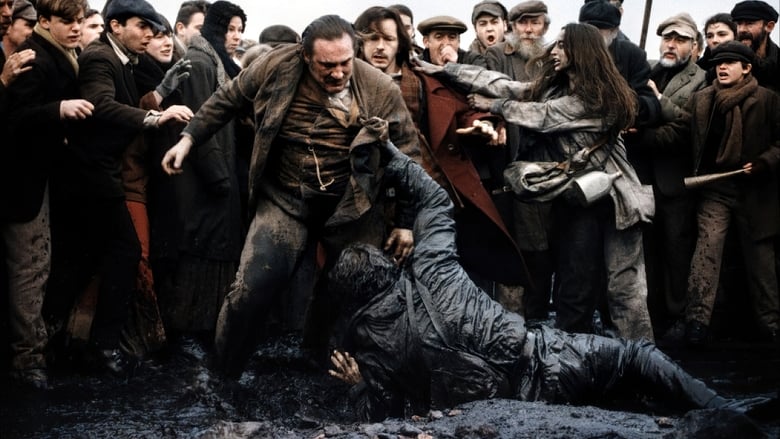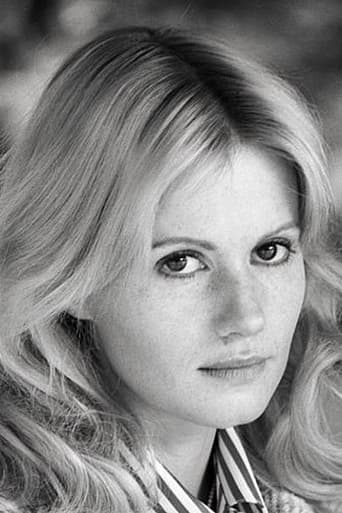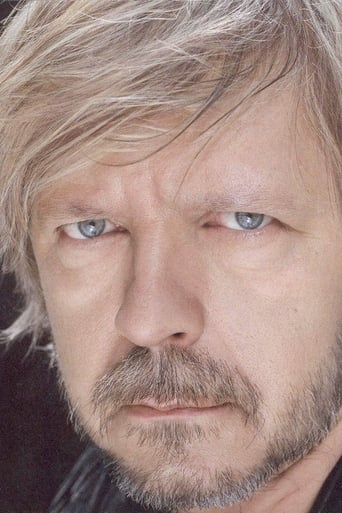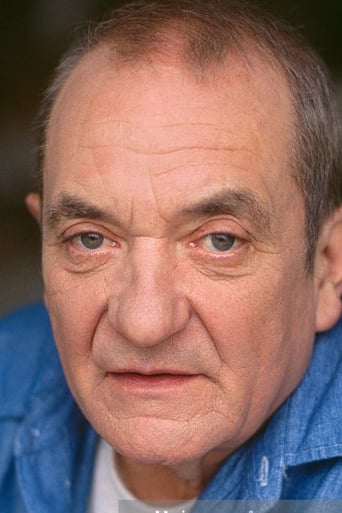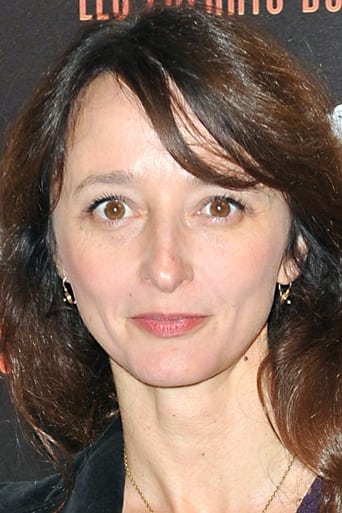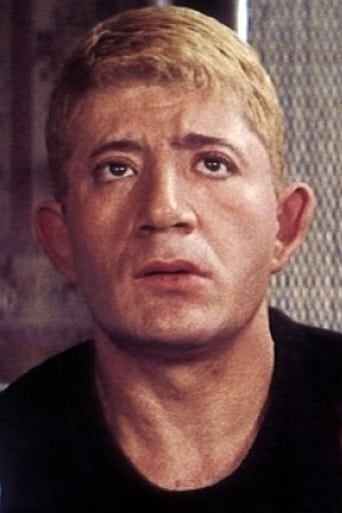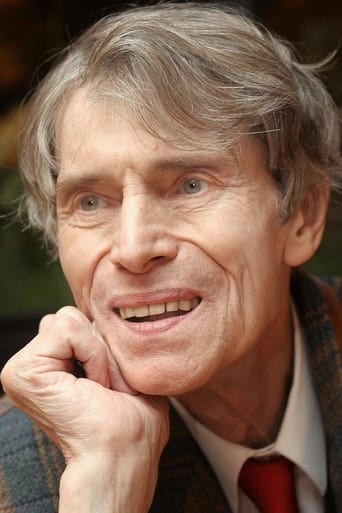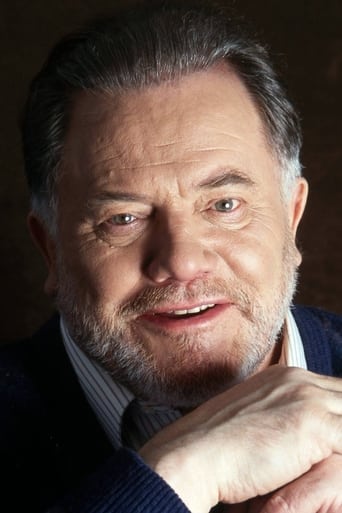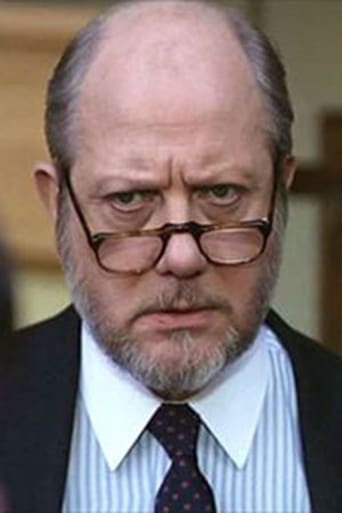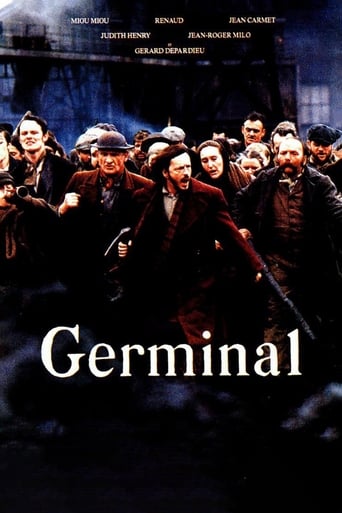
Germinal
September. 29,1993It's mid 19th century, north of France. The story of a coal miner's town. They are exploited by the mine's owner. One day the decide to go on strike, and then the authorities repress them.
Similar titles
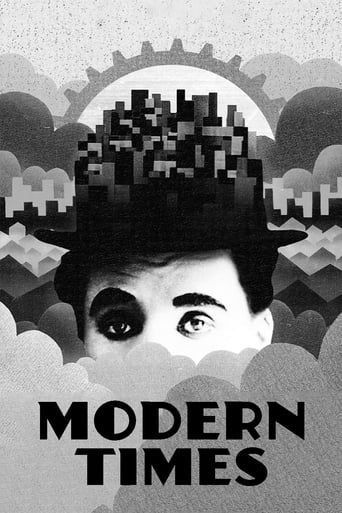
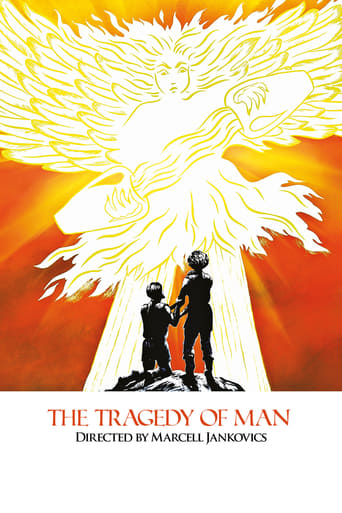
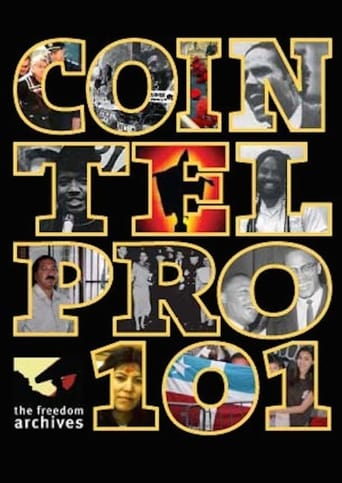

You May Also Like
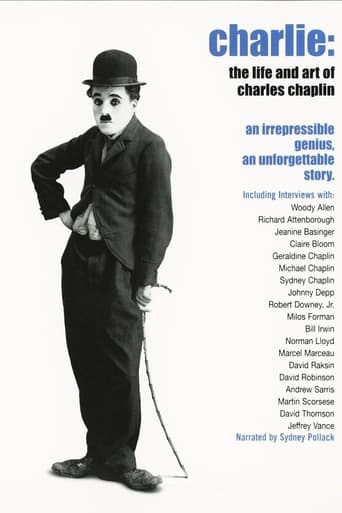
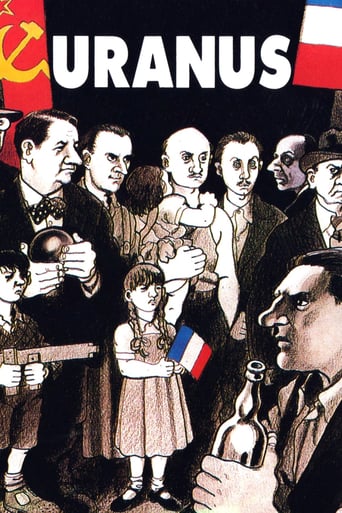
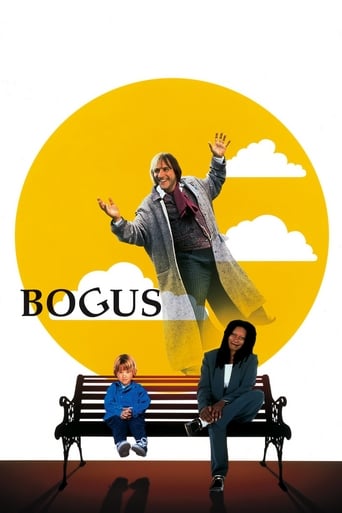
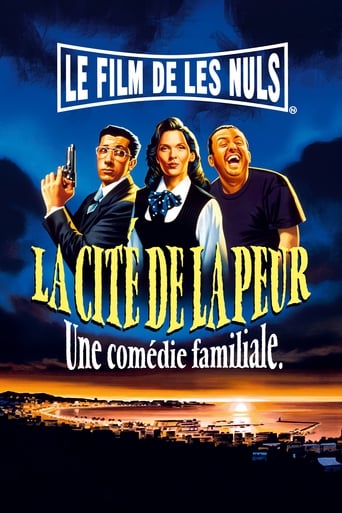

Reviews
People are voting emotionally.
Great Film overall
There's no way I can possibly love it entirely but I just think its ridiculously bad, but enjoyable at the same time.
There are moments in this movie where the great movie it could've been peek out... They're fleeting, here, but they're worth savoring, and they happen often enough to make it worth your while.
Prior to this most recent cover of Emile Zola's novel by Claude Berri, they were various renderings on the silver screen before. A silent version was shot in 1913 and remains difficult to watch. In 1962, Yves Allégret's version of Zola's sprawling novel followed very closely the thread of the storytelling which came to the front while the descriptions of the working-classes and the upper classes took a back seat. 30 years later, Berri got down to a new transposition of the novel to the screen to locate her in the vein of French heritage. Developed by the Mitterrand government, this trend spawned films which were meant to be a popular quality cinema facing American blockbusters and to show French culture in literature at key-moments in French history. This movement was at its peak at the dusk of the eighties and the dawn of the nineties with "Jean De Florette", "Manon Des Sources" (1986), "Cyrano De Bergerac" (1990) or "Madame Bovary" (1991). Generally, these films were financially profitable but weren't up to scratch from an artistic perspective. "Germinal" belongs to this category. Probably the most famous installment in the Rougon-Macquart saga, "Germinal" is also one of the most potent French novels ever written. It was a perilous task to transpose it to the screen and Berri partially did well his job. His film follows very closely the staple framework of the novel and only keeps its main installments including some grisly ones (the sequence of the castration). Hence a simplified and watered-down version in which certain moments are clumsily linked up. Overrall, Berri's piece of work joins the list of films derived from novels in which to be as faithful as possible to the basic work can hamper the artistic potential of the film.Before being a filmmaker or an actor, Berri is especially labeled as a producer and for "Germinal" which was partly sponsored by French government, he had a Pharaonic budget at his disposal to reconstitute a prickly era of French history. Lavish costumes, an authentically built pit village are clear signs of this budget. Places, manners and the living standards of the proletariat and the bourgeoisie which encompassed deep inequalities are faithfully depicted in a hard-hitting way. There's a noticeable detail during the party: the fight between the cocks is an evident metaphor of the class struggle. A blatant gap between the stark pit village, especially the dour house of the Maheu and the lascivious residences of the Gregoire is enhanced by a photography with evocative colors. Berri faithfully captured Zola's novel and his budget was up to scratch to the demands of the novel. But as I mentioned above, Berri is first and for most of a producer. As a filmmaker, his job remains limited to make him go in the restrained circle of the seminal contemporary French filmmakers. Zola's ground-breaking sweep also encompassed a plea in favor of the working classes who lived in squalor and a condemnation of the bourgeoisie in their posh universe. These features are perceptible in Berri's film but that's all. The director contents himself to shoot the watershed and momentum moments of the book without developing his own perception or bringing his personal touch. Berri is unable to create a cinematographic language to render the strength of the most harrowing or blackest moments in the novel. That's why his directing has an academic feel. So, the most blackest aspects of Zola's novel vanish on the screen. In the sequences after the strike, the writer depicted in an incredible harsh style, the Maheu's tawdry conditions and their bigger misery caused by the fiasco of the strike but one doesn't really feel this misery. Then, on the scene when Maigrat the greedy shopkeeper gets emasculated, Zola wanted to raise the wild side of the miners, especially women and it's not palpable in spite of the commendable efforts of the actresses.The cast gathers a bevy of actors who are representative of French cinema but certain choices are debatable for different reasons. Renaud, one of the most popular and finest contemporary French singers plays his game well as the lead Etienne Lantier but he was a little too old for the role. On the paper, Lantier was about 20-25 years old and Renaud was in his forties when he acted. Beside him, Gérard Depardieu is physically Maheu but his character is psychologically subdued than in the book. The frail Miou-Miou wasn't the ideal actress to epitomize the stout and weakened Maheude. But Laurent Terzieff, a very ambitious thespian only appears for about a quarter of an hour in the whole film but effectively taps his little underwritten part. He just has to pronounce little lines to unveil his great skills of actor. The same goes for Jean Carmet whose character name and moniker, "Bonnemort" (good death) took an ironic dimension when he passed away shortly after the movie reached the streets. Jean Roger Milo was ideally cast as coarse, hairy Chaval.I don't want to demean Berri. His movie is thoroughly watchable but it is proof that Zola's work needs something else on the screen. His simplified cover hardly does justice to Zola's potent cry of revolt. It is at best mildly entertaining and for the non- speaking French viewers, it can be gratifying but for the French viewers who are Zola insiders, it might be a little frustrating. But it didn't stop this epic movie to ride high in the French box-office and to line Berri's pockets.
Genius - Hollywood can never touch this. We should be thankful that there is a country that produces real films - and of this scope. I cringe to think how badly this would have been mutilated by Americans - we'd have a happy ending, they'd "go easy" on the commie stuff, there would be no premarital relations, the shopkeeper would be spared, some bland and muscly "action hero" type would catch the saboteur character and they'd fight with wrenches - sparks flying in the mineshaft. They would take out all social commentary, rename it etc etc... And then - the sequel "Germinal 2 - the Heroes of the Pit!" in a modern day setting with oil wells and helicopters. Anyway, in all sincerity, I hope the accountants of Hollywood never try to butcher this story.
This film is based on a book by French Novelist Emile Zola and is one of a series called the Rougon-Macquart which also includes "Gervaise", "Nana" and "Au Bonheur des Dames". Now Zola was a well known leftist (commy) so you know that the film as the book is very simplistic painting a picture on one side of the "poor old workers" and on the other of the "wicked capitalist bosses" living in luxury. We all know that in reality it was not exactly that but this is the sort of thing leftist people like to hear as it gives them a reason to exist. Also the various groups of miners fight amongs themselves, some want to work others want to strike, those who want to strike try to selfishly prevent the others from going to work. In addition to that, an Anarchist subversive actually sabotages the mine, killing many of the miners in the process and then slinks away in the night. He believes in total bloodshed so the world may start again anew and couldn't care two hoots about the fate of the miners.We also see a baker attacked by the crowd hungry for bread and his private parts cut off ( totally unneccessary scene put in on purpose to shock audiences no doubt) So much for the rubbishy politics of the film !That said, cinematographically the film is not bad - it is too long and many of the scenes are dismal - situated in a cold damp mining area in Northern France. But the quality of the acting is very Good. Depardieu and notably Miou-Miou pull off remarkable performances, and the later scenes in the flooded mine come across well when you listen to them on Home Cinema. I don't think this is the sort of film one would want to see over and over again as it is "miserable" like another one I saw called "Angela's Ashes" but it is good to have seen it once. The film ends with the mine starting up again and the miners going back to work but Depardieu is dead and Renaud leaves the area to look for work elsewhere. But the ending is not optismistic and you don't feel, after 150 minutes of film that you have got anywhere since the beginning.In short, a dreary and politically orientated plot, but worth seeing for the actors' performances.
Big production values supported by the humane acting and a heart wrenching story of poverty and misery. The script has a few gaping holes in it but you manage to overcome those obstacles and be affected by this touching film.
Top Streaming Movies











